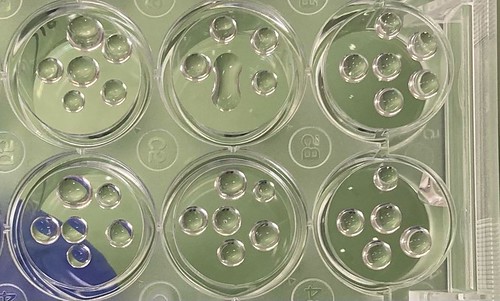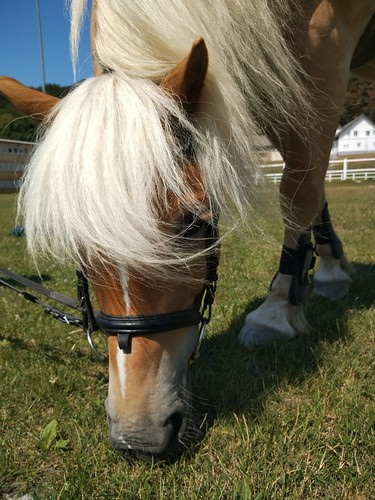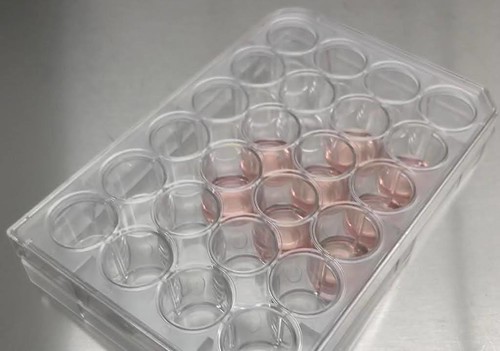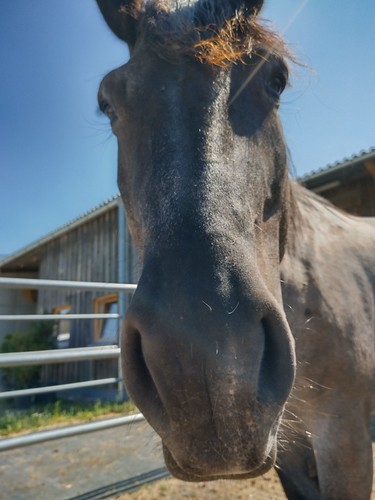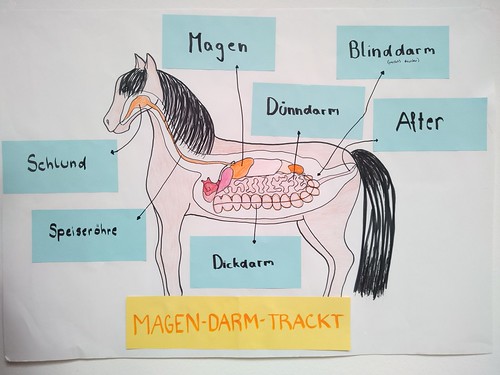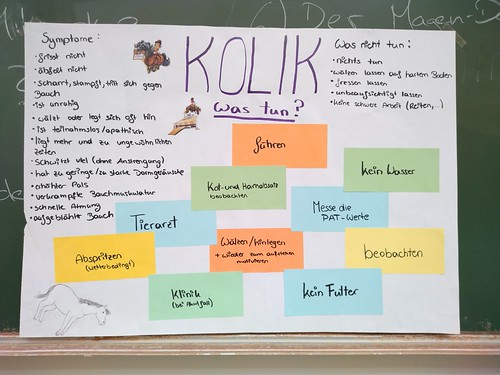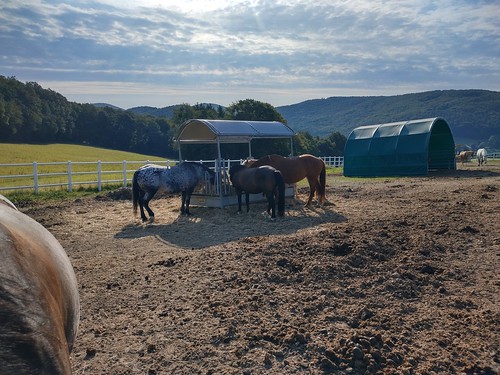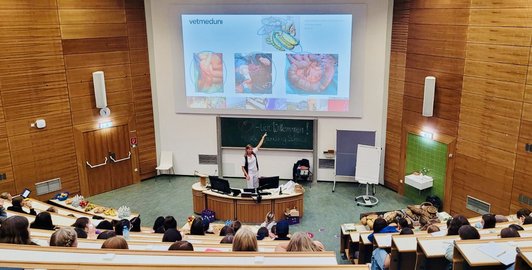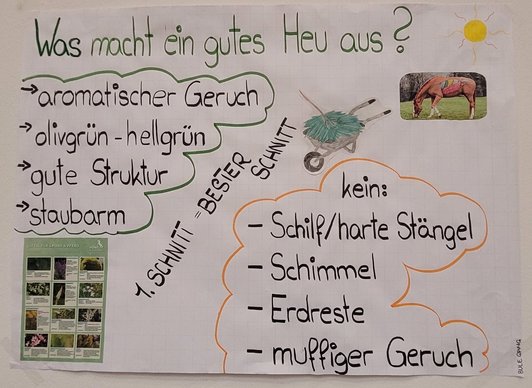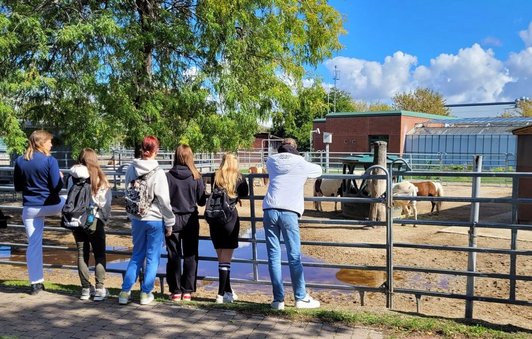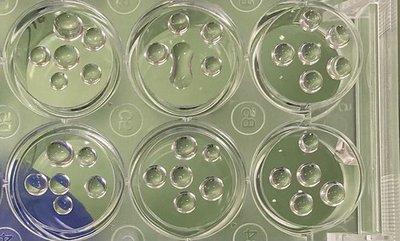Colic & butyrate
Panacea butyrate? Evaluation of production, effects and therapeutic potential in the equine colon
As part of the three-year citizen science project "Colic and Butyrate", students from an Agricultural College in Tullnerbach, Austria worked closely with researchers from the University of Veterinary Medicine Vienna to explore equine gut health. The project aimed to better understand how factors such as environment, housing, feeding and stress influence the sensitive digestive system of horses, while at the same time giving young people hands-on experience with real scientific research.
Over several years, the students regularly collected fecal samples from school horses and carefully documented background information such as feeding, housing conditions and special events in the horses’ daily lives. These samples were further processed and analysed at the university. The analyses focused on gut bacteria, digestion-related substances, stress indicators and metabolic products that are important for gut function. The results showed that each horse has its own individual gut profile, which changes depending on factors such as season, feeding regime and management. This highlights how closely daily care and environmental conditions are linked to gut health.
To better understand stress, additional indicators were studied that reflect longer-term stress exposure in horses. These analyses revealed clear effects of heat periods as well as special events such as illness or competitions. Selected metabolic products were also examined to gain insight into how such challenges affect processes in the digestive system. Looking at these different aspects together helped to create a more complete picture of how stress, metabolism and gut health are connected and provided a strong basis for further research aimed at improving animal welfare.
A key strength of the project was the active involvement of the students in all stages of the research. They did not only collect samples, but also took part in workshops, discussed results with scientists, visited the equine hospital and learned about veterinary research and clinical practices. Through interactive activities such as poster presentations, campus ralleys, data discussions and short video projects, students gained insign into scientific processes.
The collaboration was equally valuable for the participating researchers. Working with the partner school made it possible to collect unique long-term data over several years and offered new perspectives on science communication and practice-oriented research.
Overall, the project clearly demonstrates how citizen science can support animal welfare, strengthen education and enable meaningful knowledge exchange between schools and research institutions.
This project is already completed.
Publikation
-
Heckl, Anna: Charakterisierung equiner intestinaler Organoide mittels Immunfluoreszenzfärbung und Western Blot. (Opens in new window)2025-12-30, Veterinärmedizinische Universität Wien
-
Wickman, Hannah Edith Agneta: Vorkommen und gesundheitliche Auswirkungen von Mykotoxinen im Pferdeheu. (Opens in new window)2025-12-30, Veterinärmedizinische Universität Wien
-
Biermann, N: Allheilmittel Butyrat? Evaluierung von Produktion, Wirkung & therapeutischem Potenzial im Colon des Pferdes (Opens in new window)2025-12-30, OIS Forum Salzburg 2024 Salzburg
-
Anaïs Leuze, Aurelia C. Nowak, Nora M. Biermann, Franziska Dengler: Altered fecal metabolites in horses with free fecal liquid (Opens in new window)2025-12-29, DVG Vet Kongress Leipzig
-
Aurelia C. Nowak, Anna Pfundner, Annika Veselinovich, Sabine Macho-Maschler , Rupert Palme, Franziska Dengler: Fecal cortisol metabolites as a predictor of intestinal diseases in horses (Opens in new window)2025-12-29, Symposium der Jungen Physiologen 2024 Mannheim
-
Aurelia C. Nowak, Anna Pfundner, Annika Veselinovich, Sabine Macho-Maschler, Rupert Palme, Franziska Dengler: Fecal cortisol metabolite concentrations as indicator for heat stress and disease in horses (Opens in new window)2025-12-29, Tagung der DVG-Fachgruppe „Physiologie und Biochemie“ Hannover
 Schools
Schools
 Partners from Economy and Society
Partners from Economy and Society
 Scientific institutions
Scientific institutions

